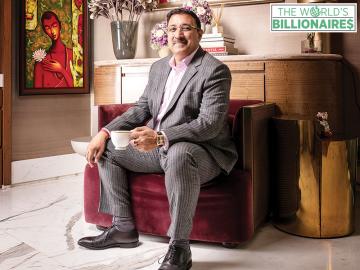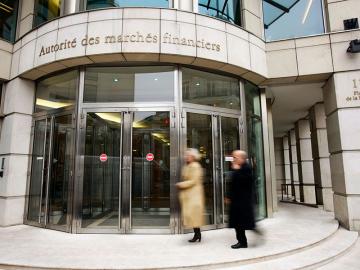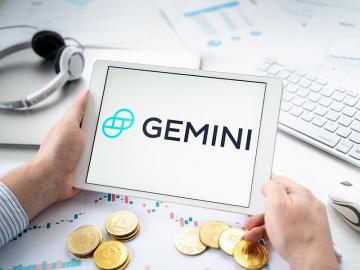The new marketing currency: Brand trust
Brand trust to work efficiently as a reliable currency, brands must follow principles of fairness in its pricing, in its treating customers, in its treating employees, in its treating the environment and in its standing up for important social causes. It's becoming apparent that the younger generation is more concerned about this fairness element
Image: Shutterstock
Two prominent researchers, Chaudhuri and Holbrook (2001) defined it as “the willingness of the average consumer to rely on the ability of the brand to perform its stated function”. Consumers willingly rely on the ability of Lifebuoy to provide health, Volvo to deliver safety, Tata products to be trustworthy and The Oberoi to pamper them with luxury. And all these brands must perform their stated function consistently. One-off is no good. Intermittent delivery too is not good enough. Brand trust is the fulfillment of a stated function, consistently. So brands need to check: “What exactly did we tell our consumers our function was?” and “Are we still living up to that?”
Here are some factors which make a brand worthy of consumer trust; factors on which they must always be executing their marketing interventions.
Of top priority is the quality of the functional product or service. A car company must deliver cars that don’t break down too often. Apparel companies must deliver clothes which don’t shrink and their colours don’t run. News channels shouldn’t be caught with their hand in the TRP manipulation machine. Political parties must not welcome new joinees with opposing ideologies for electoral convenience and power roulette wins. “Pure Honey” brands shouldn’t be caught with illegal syrupy additives. Beauty bar soaps shouldn’t be bowled out by the pH5.5 googly delivery. Not only does this behaviour affect the trust-busting brand itself, but consumers become suspicious of the product category as a whole. For example, news channels as a whole have lost the willingness of the average customer to trust them for genuine news. Consumers have become more cautious about claims by honey and soap brands in general. And so on. Such brands must not only be penalised by the legal machinery but by the other brands in the same industry too.
Secondly, for brand trust to work efficiently as a reliable currency, brands must follow principles of fairness in its pricing, in its treating customers, in its treating employees, in its treating the environment and in its standing up for important social causes. It’s becoming apparent that the younger generation is more concerned about this fairness element. And rightly so. For too long, brands have been entirely only about profits. Nothing wrong with the profit motive; just that they have not been cognizant enough of the shifts in consumer sentiments. Consumers today want brands to “earn” their trust in more ways than simply delivering products that function well and creating great advertising.
Thirdly, for brand trust to be experienced genuinely by consumers, they must reach out to customers and not wait for the consumer to reach out to the brand. Brand trust will always be resilient when brands are pro-active rather than re-active. In anticipation of a product breakdown when cars with defective parts are recalled before mishaps occur, brand trust will grow. When a colour dye used in an apparel brand is identified as a cause of skin rash and the apparel brand issues a full page advertisement in national dailies to advise customers to send back the product at no charge, trust grows. And in case it is post facto reaction to a problem faced by the customer, then trust worthy brands will do two things: take care of the customer, and take care of the problem. And both have to be done fast, and the recovery outcome must be commensurate with the problem’s intensity as perceived by the consumer. Lastly, make it easy for the consumer to complain. Brands that do these will develop brand trust like no amount of advertising (talk) ever can.
Fourthly, in today’s age of data privacy compromises, brands which treat customers’ personal data as sacrosanct will surely gain the trust of consumers. Any brand which offers complete data protection may be perceived as the metaphorical lifeboat saving lives on a sinking ship. This is one area where consumers feel extremely helpless. Giving up financial or personal data every time a commercial transaction is done just puts all those identity markers of an individual “out there”. Today since our identities have been reduced to mere digitised numbers in the virtual world, consumers would find brands that offer data protection so much more trustworthy. At the same time, if it is an international brand, it must not have different standards of data protection and privacy rules for different countries. That would be so trust-breaking. Like what the most popular messaging app in the world has been up to. This has resulted in a large number of people moving en masse to a not-so-well known (till recently) brand but which has promised (in the words of the COO) that they will always be in the business of connecting people only (and never in the business of data). It is hoped that they will stick to that promise.
Thus brands must go beyond what Chaudhuri and Holbrook suggested. Consumers long for brands to provide quality products and services, be fair in all its dealings with all stakeholders, be their voice on important issues, and respect their privacy and personal data concerns.
In a world that is rapidly becoming angst-filled and uncertain, consumers desperately want brands to be worth their trust and be purpose driven. Some brands have “got it”; others are working towards “getting it”, and then there yet others who are still with the “forget it” attitude.
Jones Mathew, Ph.D., Professor, Great Lakes Institute of Management, Gurgaon.
Check out our Festive offers upto Rs.1000/- off website prices on subscriptions + Gift card worth Rs 500/- from Eatbetterco.com. Click here to know more.
Post Your Comment














